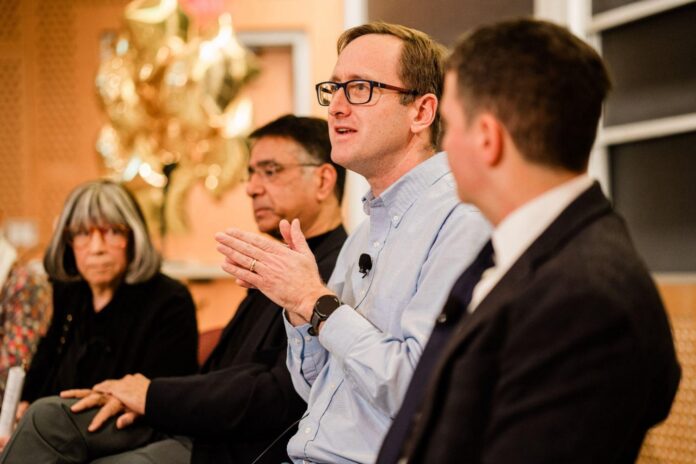Rethinking Education at MIT
The Massachusetts Institute of Technology (MIT) is rethinking how it prepares students to face the world and its greatest challenges. As technology propels society forward, MIT is revisiting its undergraduate academic program to ensure students are equipped with the skills and knowledge needed to succeed. The guiding question is: what does hands-on learning look like in the future?
Fostering a Greater Sense of Purpose
MIT emphasizes hands-on learning, but panelists are concerned that students are not engaging in enough intellectual thinking. Students are often focused on maximizing their career outcomes, rather than exploring significant questions and ideas. Educators like Christopher Capozzola, senior associate dean for open learning, believe that this is an opportunity to improve the MIT curriculum. By encouraging students to connect more with course material, rather than treating it as a means to an end, educators can help students develop a greater sense of purpose.
Encouraging Intellectual Thinking
Adam Martin, professor of biology, asks his students to challenge the status quo by incorporating test questions with data arguing against the models from the textbook. This approach encourages students to think critically and challenge what is considered the frontier of the field. By doing so, students develop a deeper understanding of the subject matter and are better equipped to tackle complex problems.
Considering Context
Context is a crucial aspect of education, and MIT is working to incorporate more contextual understanding into its curriculum. For example, class 7.102 (Introduction to Molecular Biology Techniques) uses story-based problem-solving to show students how the curriculum fits into real-world contexts. This hands-on approach unlocks students’ imaginations and incentivizes them to persist with repeated experimentation.
The Importance of Contextual Understanding
Educators agree that contextual understanding is equally important to a STEM curriculum as technical instruction. By teaching and thinking at the interface between technology and society, technologists can feel responsible for the things they create and use. This approach helps students develop a deeper understanding of the social and moral consequences of their actions.
Creating Interdisciplinary Opportunities
Interdisciplinary education is critical preparation for the complexities of the real world. MIT is working to expand opportunities for undergraduates to collaborate across academic departments and other campus units. The New Engineering Education Transformation (NEET) program, for example, requires technical and social expertise and encourages students to work in teams to create solutions.
Project-Based Experiential Learning
NEET is a project-based experiential learning curriculum that allows students to design, build, and install projects that integrate technical and social expertise. This approach provides students with a unique learning experience that prepares them for the complexities of the real world. By working on projects that have real-world applications, students develop a deeper understanding of the subject matter and are better equipped to tackle complex problems.
Moving Forward Together
Instructors and students are working together to design an effective curriculum that balances content across subjects or core topics. By organizing materials on Canvas, MIT’s learning management system, in a way that’s intuitive for students, educators can help students achieve their learning objectives. Student feedback is crucial in this process, and educators are working to give students a more democratic voice in the design of the curriculum.
The Importance of Feedback
Feedback from students is essential in designing an effective curriculum. By listening to student concerns and ideas, educators can make improvements that enhance the student experience. This approach helps to create a more inclusive and effective learning environment that prepares students for success.
Conclusion
As MIT continues to enhance its educational approach, the insights from the Festival of Learning highlight a crucial evolution in how students engage with knowledge. By rethinking course structures, integrating interdisciplinary and experiential learning, and incorporating contextual understanding, MIT is working to create a curriculum that balances technical expertise with a deep understanding of social and ethical contexts. By equipping students with the kinds of civic knowledge they need to go out into the world, MIT is preparing the next generation of leaders to tackle the world’s greatest challenges.

